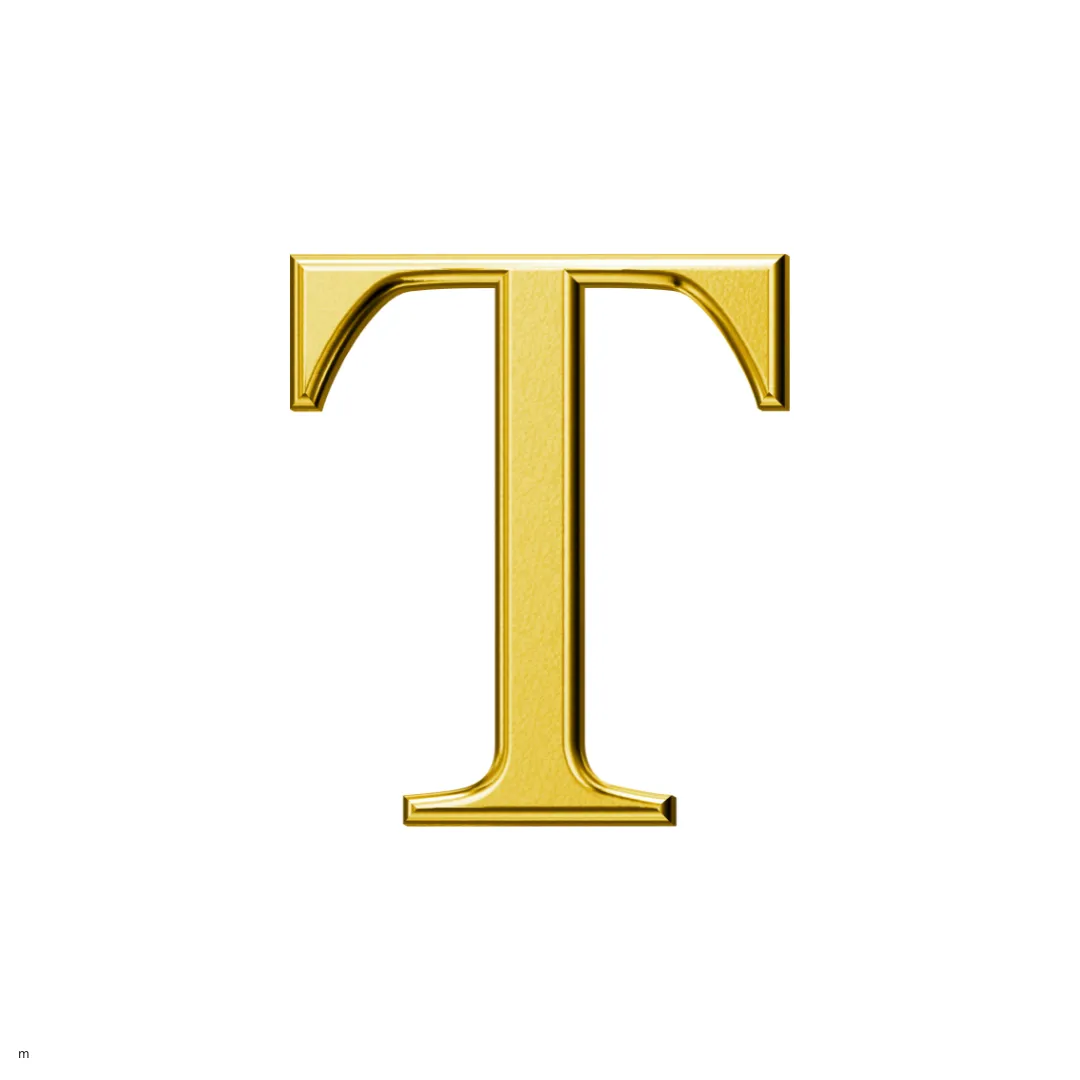By: Trends Editorial Team
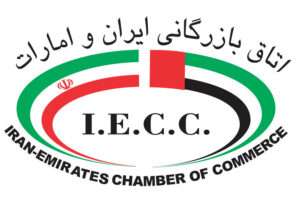
 Dr. Farshid Farzanegan was appointed as the Chairman of Iran-Emirates Chamber of Commerce in 2019. He has degrees from Oklahoma City University in Strategic Management and Post-Doctoral of Business Administration from Management and Economics Faculty of Tarbiat Modares University in Tehran.
Dr. Farshid Farzanegan was appointed as the Chairman of Iran-Emirates Chamber of Commerce in 2019. He has degrees from Oklahoma City University in Strategic Management and Post-Doctoral of Business Administration from Management and Economics Faculty of Tarbiat Modares University in Tehran.
Dr. Farzanegan’s current mission is to improve the business relationships between Islamic Republic of Iran and the United Arab Emirates by representing Iranian producers, traders and businesspeople in the private sector, and by promoting mutual trade relations with active Iranian businesses within the UAE.
Thank you so much for giving Trends this exclusive interview despite your busy schedule, we are very grateful. If you were to summarize the current state of business/trade between Iran and the UAE, how would you describe it?
Trade between Iran and the UAE has always been associated with ups and downs. If I want to discuss in general terms the state of affairs from 2012 to the signing of the JCPOA, and then from the current US administration assuming control to date, I can actually say that Iran’s exports to the UAE have gone through a positive trend. During the JCPOA negotiations years between 2012 and 2017, and subsequently after we signed the agreement, we reached the peak of exports with an amount equal to $6.7 billion. Unfortunately, after that, for a variety of reasons including Trump’s oppressive and unilateral pressure and sanctions, this upward trend slowed down. In fact, exports from Iran to the UAE in 2019 declined to approximately the same levels as in 2011-2012 era. With respect to the import process, due to the restrictions imposed on Iran, among them the foreign exchange matter, trade with the UAE has generally had a downward trend in recent years. On the other hand, the trade balance between Iran and UAE has always benefited the UAE. UAE is mostly an exporter of goods to Iran making Iran the importer from the UAE. The diagram below shows the peak volume of Iranian exports to the UAE equal to approximately $6.7 billion. At the same time, the largest volume of Iranian imports since the beginning of 2012 reached more than $17 billion.
Please tell us about the history of economic activities between the two countries. What is the trade volume between Iran and the UAE today? What products and services are still being exchanged directly or indirectly?
Iran and the UAE have always been good trading partners for each other over the years. The UAE has been the second largest trading partner of Iran and Iran places among the top ten trading partners of the UAE. Considering Iran’s potential in relation to the United Arab Emirates as a developing country, Iran can use its mature capacity and resources to supply raw materials and provide efficient manpower to the UAE for growth.
Between 2014 and 2018, Iran had the highest exports to the UAE with $7.4 billion in 2016. This indicates that the two countries have almost no problem in achieving Iran’s target export figure to the UAE, which is about $ 7.5 billion. There is however a need to address matters such as unilateral U.S. sanctions and resolve transaction and banking issues related to Iranians accounts.
Overall, trade in 2019 between Iran and other trading partners shows China in first place with $20.7 billion in total exports/imports, and the UAE and Turkey with $13.4 billion and $9.9 billion, respectively, in next positions.
UAE have always been good trading partners for each other over the years. The
UAE has been the second largest trading partner of Iran and Iran places among the top ten
trading partners of the UAE
In 2019, the UAE recorded economic growth of +14% and industrial production growth of +4.2%, and among exporters of goods to Iran, it ranked higher than China, Turkey and Germany. Also, among the importers of Iranian goods, the name of this country is after China and Iraq for the same year.
Iran’s total trade volume during the 12 months of 2020 was $34.5 billion in exports and $38.5 billion in imports, adding up to $73 billion.
To expand on the above, the amount of trade imports between Iran and its international trading partners in 2020, in order of priority was with China at $9.7 billion in the first place, UAE with $9.6 billion coming next, followed by Turkey with $4.3 billion, India with $2.1 billion and lastly Germany with $1.8 billion of trade deals.
Similarly, the amount of trade exports between Iran and its other partners in 2020, in order of priority, still shows China with $8.9 billion in the first place, Iraq with $7.3 billion ranking next, followed by the UAE with $4.6 billion, then Turkey with $2.5 billion and finally Afghanistan with $2.2 billion.
In 2020, the volume of trade between Iran and the UAE increased significantly, despite all the issues, including sanctions and Covid-19 pandemic. This trend is also seen in the second quarter of the current calendar year and seems to be regaining momentum.
More importantly, in the first 3 months of the current Iranian calendar year (which happens to be the second quarter of 2021), the UAE has been able to make itself the main exporter of goods to Iran by pushing China aside, and this volume of export is likely to increase significantly in the coming years.
It should be noted that Iran’s most important export destinations in the 3 months of spring this year were China, Iraq, UAE, Turkey and Afghanistan, in that order. For example, 3.4 million tons have been exported from Iran to the UAE, amounting to approximately $1.3 billion in trade. In fact, about $400-420 million a month in goods is currently being exported from Iran to the UAE.
Among the most important import countries to Iran, in the 3 months of spring, the UAE by far outperformed other countries. To be precise, during this period imports in tons to Iran in order of volume were: the UAE 2.5 million tons, China 683 thousand, Turkey 888 thousand, Germany 239 thousand and Switzerland 472 thousand tons. This is while the UAE has injected $3.2 billion, China $2.2 billion, Turkey $1 billion, Germany $414 million and Switzerland $384 million in liquidity to Iran. These statistics indicate that the UAE has been fully able to replace China.
In general, the most important export items of Iran in 2020 to all countries of the world, in order of priority, are gasoline, natural gas, polyethylene, propane and finally pistachio nuts. As the UAE is itself oil rich, most of its direct imports from Iran have been items such as shaped iron, cement, lead, vegetables and fruits, nuts, raisins and saffron. Trade transactions are also conducted in the Free Zones, and there too refinery and petrochemical products lead the way. What UAE sends to Iran, in terms of variety of goods, is as follows: cigarettes, sugar, coffee, cocoa, malt, semi-prepared food, perfumes and colognes, international books and magazines, air conditioners, and home appliances. In addition to refinery and petrochemical products, other goods such as synthetic fibers, machinery including motor vehicles and automobiles, auto parts, and air conditioner, a variety of process control devices such as level gauges and tools, as well as coconut, tomato paste, and cooking oil are exported from Dubai to Iran. Currently goods such as computers and monitors, tires, refrigerators and washing machines which were previously imported from UAE are no longer available for import due to Iranian government restrictions.
In general, the UAE is one of the destinations with the most potential in the region for attracting goods. Specifically, goods absorption potential in order of capacity in the neighboring countries around Iran, aside from UAE at first place with $261 billion are, Russia, Turkey, Saudi Arabia, Pakistan, Iraq, Kuwait and Oman with $238 billion, $233 billion, $135 billion, $60 billion, $53 billion, $36 billion and $34 billion respectively. Overall potential in 15 countries within neighboring reach of Iran is very high for import, and Iran should theoretically use this potential optimally and increase its exports with countries in the region. However, Iran’s exports to neighboring countries amounted to a mere $24 billion in 2018. This is while the market has a depth of $1,160 billion, which unfortunately shows Iran’s underperformance in the export field.
The volume of UAE imports from other countries is higher than the global average. We were expected to export at least $7 billion to that country in 2020, but this forecast did not materialize. However, we would like to see Iran’s exports to the UAE reach $ 6 billion in 2021. At its most optimistic, it is predicted that if sanctions are lifted, and we don’t have to deal with JCPOA or FATF, Iran could export at least $ 11 billion. On the other hand, it is predicted that in 2025, the volume of trade between Iran and the UAE, which is currently about $14-15 billion, will reach $20 billion and in 2030 will grow to $30 billion.
What do you see as the biggest hurdles on the way of doing business between the two countries (US sanctions, geopolitical issues, lack of information among investors and traders, Iran’s business environment, commercial rules and regulations…)?
Obstacles and problems of foreign trade development are:
• Draconian rules of the UAE Central Bank on bank accounts held by Iranians
• Deficiencies in the infrastructure of land, rail and sea transport fleets
• Shortage of fleets of refrigerated shipping containers for road transport of temperature-sensitive and perishable cargo
• Lack of sufficient cold storage infrastructure at Iranian ports to preserve agricultural products for export markets
• Lack of stability in the Iranian regulations processes and legislative environment in terms of proposed policies and rules and regulations for export of products
• Lack of reliable monitoring of the target market for competitive conditions, and comparative advantage of goods against other competitors
• The need for securing and exercising preferential and free trade agreements
• Restrictive policies and directives of the Central Bank of Iran
• High customs base valuation for some goods for return of foreign exchange from exports
• Lack of necessary incentives to exporters during the Expo event
• Poor implementation of the barter mechanism and the related models
Proposed foreign trade development solutions are the following:
• Facilitating the travel of economic stakeholders
• Strengthening of collaborations between Melli and Saderat Banks of Iran with several Emirati banks
• Holding permanent or seasonal exhibitions and markets to introduce and showcase Iranian products
• Encouraging a strong presence of Iranian manufacturers and traders (private sector) in the Expo 2020 Dubai
• Facilitating of exports at the time of Expo 2020 event by the Ministry of Industry, Trade Promotion Organization and Customs through removal of current strict export regulations
• Adopting active economic diplomacy to reduce hostility with the southern neighboring countries of the Persian Gulf (UAE, Bahrain, especially Saudi Arabia with $135 billion in goods absorption potential)
• Establishment of an economic section of the IRI Embassy in Dubai or Abu Dhabi in connection with the joint chamber of commerce?
• Setting up an industry and commerce desk in connection with the joint chamber of commerce and Iran chamber of commerce at the Embassy
• Expansion of Iran’s tourism and handicrafts industry during the Expo 2020
• Joining the FATF for financial transfers for Iranian bank branches based in the UAE
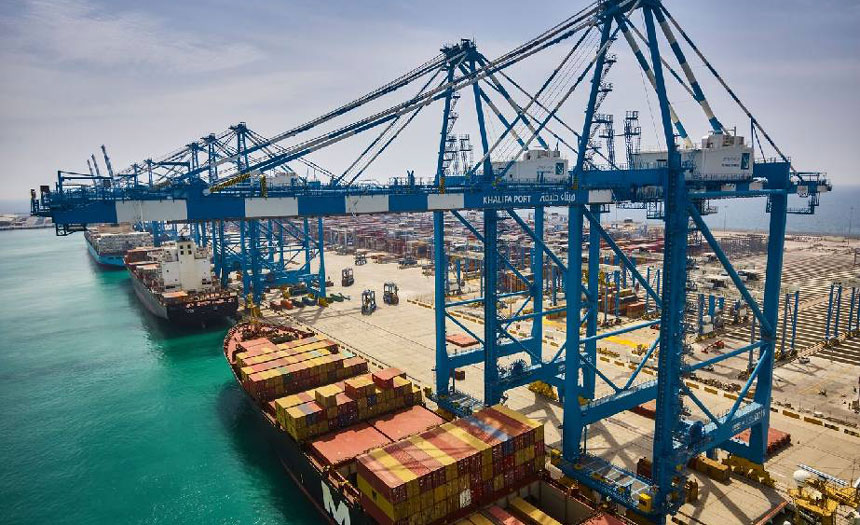
Iran-Qatar Chamber of Commerce Shares the Latest on IranQatar Trade & the World Cup 2022
Iranian businesses and entrepreneurs experienced some issues in the past few years with regards to their residency, work permits and business licenses in the UAE. Are those issues resolved? Is business for Iranian expats in the UAE returning to normal?
Unfortunately, what you say is right. In the past, the UAE for unknown reasons has deported, or ordered the departure of a number of Iranian businessmen and their families from the UAE, even some who had lost businesses and homes and were not guilty of any offense. Sadly even a number of Iranians who were going about their normal lives and were busy with their daily work and respected the rules of the country were affected by these unwarranted and draconian laws.
We seek to prevent this from happening again because many Iranians know and respect international rules. It is generally expected that when laws are enacted and clearly communicated anywhere, those who are serving and contributing to the progress of their social environment should not be disenfranchised simply because of their nationality and passport. Iranians are a very civilized social group in the UAE and most of them have university education and have participated in the development of the UAE.
We are trying to clear up matters in our meetings with authorities, and we’re hoping to establish the fact that just because someone has an Iranian passport, they should not be restricted. Iranians have a right to be treated like any other nationals, and foreigners living in any country should not be oppressed simply because they are not citizens of the host country.
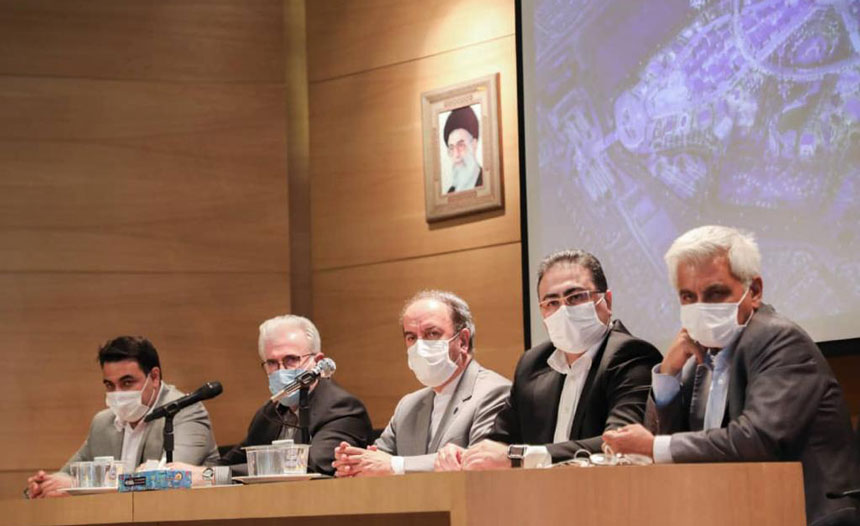
Iran and Portugal-Poised for Future Expansion of Relations-
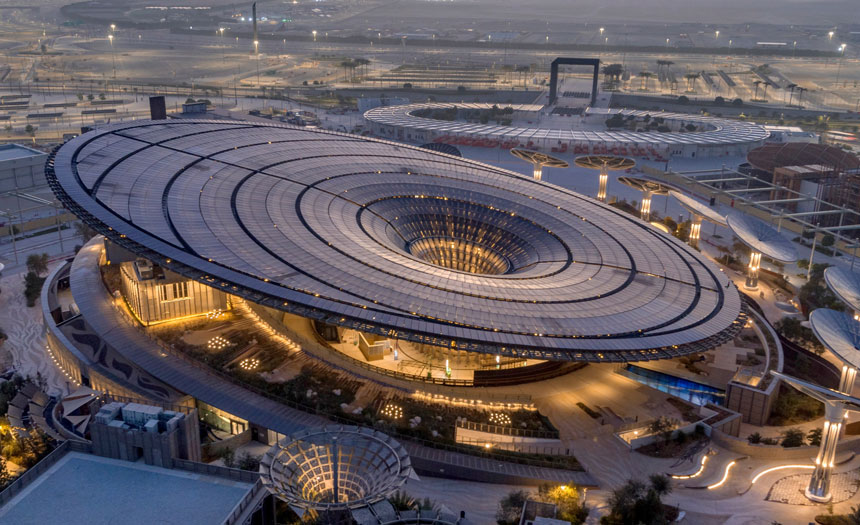
Please tell us about the Iran-Emirates Chamber of Commerce. When was it established? What is the mission and vision and main activities of the Chamber? How is that different from IBC (Iran Business Council)?
The Iran-Emirates Chamber of Commerce was established in June 2008 after obtaining approval from the Iran Chamber of Commerce, Industries and Mines, with the aim of expanding trade relations between Iran and the UAE. Strengthening the business environment and expanding economic activities of the two countries were the primary goals of the formation of this Joint Chamber.
Similarly, the most important tasks of the Chamber of Commerce are:
• Preparing an up-to-date database of UAE economic partners and stakeholders for members of the Joint Chamber in accordance with the field of activity and requisitioned enterprise
• Holding business-to-business (B2B) meetings in person or virtually
• Introducing interested investors of the two countries to one another for commercial projects and to invest in production and trade of goods
• Providing guidance to applicants of both countries interested in registering their manufacturing, commercial or investment company
• Cultivating and educating stakeholders in the general principles of trade and commerce through compilation of educational materials and holding training workshops, seminars and use of virtual education
• Cooperation with the Trade Promotion Organization in order to implement developmental and promotional programs
• Regular communication with public and private organizations, parliamentary friendship groups, Iran-UAE friendship associations and other institutions of the two countries for better mutual understanding
• Identifying obstacles and rules and regulations preventing the development of economic relations between the UAE and Iran and pursuing their revision or elimination by decision-making authorities
• Announcing and promoting calendars of trade exhibitions in the UAE and advertising the economic conferences of Iran and the UAE
• Cooperating with international arbitration centers in order to effectively pursue claims of businesspeople, companies, and Emirati and Iranian institutions and creating a robust environment for business relationships
Due to the importance of the goals of the Iran-Emirates Chamber of Commerce for the development and expansion of commercial and entrepreneurial relations of Iran with its southern neighbor, a more active presence and participation of members will guarantee achievement of our goals and implementation of planned programs. We therefore ask all economic stakeholders to enlist in and cooperate with this joint Chamber and be part of a promising venture.
There are a significant number of Iranian businesspeople who trade with the UAE, and it is a fact that they encounter numerous problems doing business there. The Iran-Emirates Chamber, which focuses on solving the problems of the mentioned traders and manufacturers, is planning to hold regular meetings with the Dubai Chamber of Commerce. We have formulated a program of four meetings with specific topics of dialogue between the two Chambers to explore business issues. During these meetings we will negotiate methods of communication and dialogue between the two Chambers to review, discuss and resolve obstacles that impede resolution to these problems.
What have been some of the Chamber’s recent activities and events during the Covid-19 pandemic? Are there any business delegations visiting either side any time soon (physical or virtual)? If so, in what sector(s) and when?
Yes, we have had many good meetings, and we have perceived the Dubai Chamber of Commerce as an independent and professional Chamber that aims to develop business with little inclination to be tainted with political views. We also believe that conversations and dialogue between us and the UAE with a focus on the private sector will lead to closeness of hearts and mutual cooperation. The private sector, regardless of political issues, trades in an impartial and non-partisan way. Similarly, we seek a very friendly and stable business relationship environment with the UAE and the expansion of these relations. Our meetings have been free of political stigma, and we have tried emphasizing cooperation between the two countries. We maintain that all future regional development must be in the shadow of peace and security, and that the more trade is conducted between the two countries and their peoples, the greater the peace, security and friendship between the two nations. Ultimately this is what the Dubai-Iran Chamber of Commerce puts a special emphasis on.
Please tell us about your membership program. How many members do you have? Who can apply to become a member of the Iran-Emirates Chamber of Commerce and what services and benefits do they receive?
Yes. In fact, the Iran-Emirates joint Chamber membership consists of Iranian companies and Iranian parties that have presence in both Iran and the UAE. Iran-Emirates Chamber advocates for the proprietors of these companies and acts as their voices in the Administration and Government of the Islamic Republic of Iran. The Chamber also looks after these stakeholders to make sure their business and individual rights are not violated. We are the voice of the private sector in the Government, and in this respect, we seek to ensure that legislative rules and regulations approved and adopted for that sector do not adversely affect either the Iranian or the Emirati nationals. To facilitate such business-friendly regulatory environment we will be interacting with the government and policy makers through our channels in the Chamber of Commerce. In this way we hope to prevent any violation of rights of our respected members.
Another area that we believe can help the Chamber’s members is the assimilation of accurate and reliable import/export statistics with respect to UAE markets to be provided to our member traders and merchants. Also, we are currently monitoring the needs of the UAE market to increase Iran’s exports to the UAE in a meaningful way. To help strengthen the capacity of our private sector, we are providing necessary training and dissemination of information to our members and responding to all questions regarding import and export to the UAE. We also try to clear the way for a friendly and seamless trade environment for our trade counterparts in Iran. For example, if an Emirati businessperson has a grievance about a relationship with Iran on an issue, we will take the necessary steps to resolve it. Likewise, we will smoothen the way to help developing sectors move along to achieve their ultimate business goals. To achieve all of this we have had several meetings at the high levels of the Government of the Islamic Republic of Iran to point out the importance of the UAE for our national trade, and how to use the UAE’s infrastructure to develop Iran’s trade and thus strengthen healthy trade between the two countries.
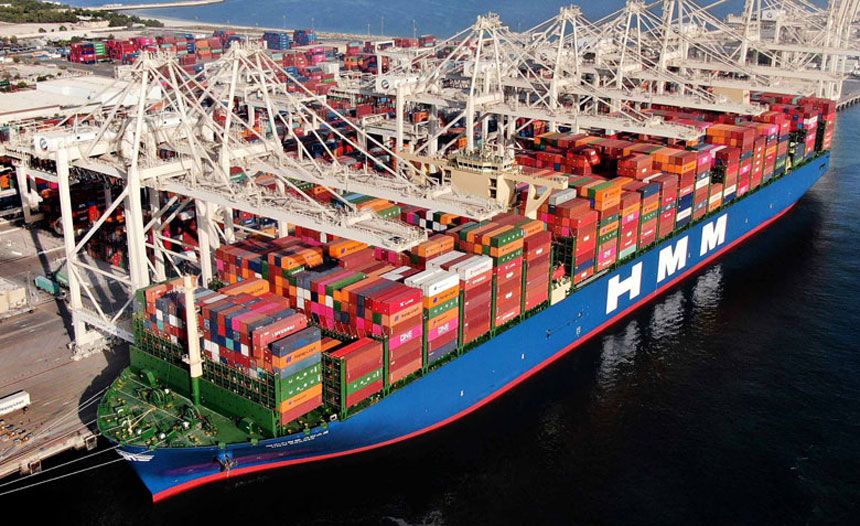
Are you optimistic about the revival of the JCPOA? What would be some of the business opportunities between Iran and the UAE be if that becomes a reality? What would be some of the ongoing challenges if we go back to the original deal? Can you perceive any scenario when even the banking sanctions are terminated?
In the case of the JCPOA, it is my opinion that the Islamic Republic of Iran must join regional agreements and regional systems and continue its relationship with the outside world constructively. The private sector’s dealings with the international business community have given us accurate and reliable information about the difficulty of working outside Iran. Many Iranian businesspeople have been economically pressured at some point or another, and their rights have been violated. Through contacts with the Iranian government and the Emirati side, we are trying to facilitate and resolve these problems and trying to expand healthy trade between the two countries. The private sector of the Iranian Chamber of Commerce has emphasized that Iran should return to the negotiations operationally and to accordingly advance its relationship with the business world. They have stressed the need to join all international tariff systems such as the Eurasian Economic Union (EAEU) and the Financial Task Force (FATF), and to resume a constructive relationship for trade with countries on the southern edge of the Persian Gulf.
Iran has various capacities and potentials such as its highly educated human resources, agricultural, food, food conversion industries, industrial products, petrochemicals, chemicals, polymers, refining, plastics, cement and all kind of minerals. These are all produced in Iran at a most affordable price for trade purposes. Furthermore, no country can be as effective as Iran in the objective of developing the economies of countries in the Persian Gulf region. We have always pointed out to our neighboring states that Iran has a unique capacity in this regard.
Potential capacity of Iran’s economy can be itemized as follows:
Natural Resources and policies
• Oil and gas: Ranked second for gas reserves and fourth for oil reserves
• Rich Ore resources with 60 types of ore products. Ranked 15th globally and among the first 10 countries for tin, iron, copper and zinc reserves
•Variety of minerals including high-consumption minerals, trace elements, precious, decorative and valuable stones
Strategic geographical location
• Point of transit and transportation with high demand from neighboring countries
• 24 international road border outposts, 5 rail border stations and more than 11 small and large commercial ports
• Provides routing for about 40% of the world’s oil through the Strait of Hormuz in the Persian Gulf daily
• Situated on the paths of international transit corridors
Fields of Science and Technology
• Ranked first in the region and 16th in the world for submission of scientific articles and research papers
• Ranked 13th in the world and first in the region in 2017 in the field of biotechnology
• Ranked 17th in terms of the number of top universities in the Times ranking system
We anticipate Iran’s cooperation with the UAE to have potential for expansion in the following areas:
• Supply of raw materials for production
• Joint investment for production and employment in both countries
• Positioning the two countries in the financial supply chain as well as the value creation chain
• Identifying and promoting experts and professionals in the required fields at reasonable costs
• Production of variety of fresh fruits in all four seasons at high quality (organic) with reasonable shipping costs
• Production of a variety of high-quality food products with the right diversity and at fair shipping costs
Expo 2020 Dubai is ongoing as we speak. Please tell us about it. What are some of the opportunities for Iranian companies at the event?
Certainly Expo 2020 happening in such proximity of Iran is a great opportunity. A 50-year-old country is hosting a 170-year-old event, so we commend and congratulate Dubai and the UAE for holding this magnificent event. We know what hardships they have endured since 2015 to be able to carry out a very good planning. We Iranians are very proud to be attending the Expo 2020 and congratulate all those involved and agents of this event in Dubai for their success.
Expo is a unique opportunity to illustrate the stance of a country on the global scene, and to allow it to demonstrate what plans and approaches it will engage in to deal with the world’s problems and issues, and the more specific macro strategies it has developed for facing these issues in the following 5 years. The Expo is also a great chance for different export enterprises to transform international community’s mind about the production capabilities of a country, and to introduce national brands to global visitors – and the Islamic Republic of Iran is no exception. There is also an opportunity for manufacturing and exporting companies to supply goods and products needed by at least 25 million expected visitors during the 6-month period of the Expo 2020. The Expo 2020 Dubai is where these companies can attend conferences along with their international counterparts to introduce their goods and brands, and attract foreign investors, send their business delegations to participate in B2B meetings and benefit from UAE’s advanced business infrastructure.
Governments are responsible parties for holding or participating in the Expo. In Iran, the National Headquarters of Expo is headed by Dr. Hassan Zamani, Chairman of the Board and Managing Director of the Islamic Republic of Iran International Exhibitions Company and Commissar General of the Iran Pavilion in the Expo 2020 Dubai. The Iran-Emirates Chamber of Commerce will naturally also provide the necessary assistance to achieve the goals of our delegation.
What are some of the activities of the Chamber with regards to the Expo such as organizing delegations, B2B meetings and so on?
Iran-Emirates joint Chamber will be taking advantage of the B2B policies of the Government of the Islamic Republic of Iran, sending trade delegations, holding specialized conferences in line with the country’s trade development policies, holding seminars and webinars, meetings and gatherings, and learning about the Dubai trade infrastructure, all of which are in principle the explicit tasks of the Iran-Emirates Joint Chamber. It is worth noting that this Joint Chamber, in accordance with its inherent duty, is aware of the importance of the presence of artisans and manufacturers in the multimedia space and encourages them in their endeavors.
Iran-Emirates Joint Chamber invites manufacturing and commercial companies to present their goods and products during the 180-day Expo 2020 period in the form of introductory videos to be projected on the video walls or as interactive pages to communicate with the audience in a few minutes. Advertising should be done in a variety of ways with systematic and state of the art approaches. In fact, what is expected from the delegates and participants of the Islamic Republic of Iran at Expo 2020 is to showcase Iran’s new industries in the field of science to the international community in attendance and demonstrate to all what to expect in the future. We would like our business representatives to show to their trade counterparts the many ways of benefiting from available business opportunities, economic stimulus programs, production potentials of Iran, and the country’s range of international brand openings.
Sending trade delegations to other pavilions and creating B2B dialogue opportunities during public visits to the pavilion of each country, introducing our country’s tourism potentials, taking advantage of the media space in the Iran pavilion, increasing and promoting the growth of international trade exchanges are some of the activities we will be engaging in during the Expo 2020. The implicit marketing of goods with relative competitive advantage, introducing climate diversity of the country, familiarizing visitors with the ethnicities and rich culture of our country are also among the great opportunities that will be given to us at Expo 2020.
As final word, I mentioned before that the UAE is Iran’s second largest trading partner after China and in the fourth quarter of last year it was the largest exporter of goods to Iran. At the same time the volume of exports from Iran to the UAE was ranked third. That means the UAE is in the third place for Iran’s exports while it is the largest importer of goods to Iran.
The goal is to increase the trade volume between Iran and the UAE to $20 billion in 2025 and $30 billion in 2030. Currently the two countries are working hard to strengthen their trade relations, and in fact, according to the officials of the Islamic Republic of Iran and their counterparts in the United Arab Emirates, governments of both countries are determined to achieve this goal. Naturally the Chambers of Commerce of both countries also follow the policy adopted by their respective government officials, while our duty is to also follow up on demands of the private sector and seek an operational roadmap for all.
We warmly shake hands with all member Chambers of Commerce in UAE and seek the expansion of relations with other Chambers in the seven emirates of the country, specifically the Dubai Chamber of Commerce.
We also hope that the strategy pursued by His Highness Sheikh Mohammad Al-Maktoum in the expansion of economic relations with all countries, especially neighboring ones, will be adhered to and that an operational strategy will be developed for the enhancement of relations with Iran. In our country, the previous president and the current president, Mr. Raisi, both emphasized on expanding relations with neighboring countries and the United Arab Emirates, reflecting the exact wishes of the Supreme Leader with respect to relations with all countries. We are interested in the relations between the two countries reaching the level of an embassy, and to reach this target the economic sector, along with the Chamber of Commerce, make all necessary efforts in the expansion of trade relations between the two countries.

